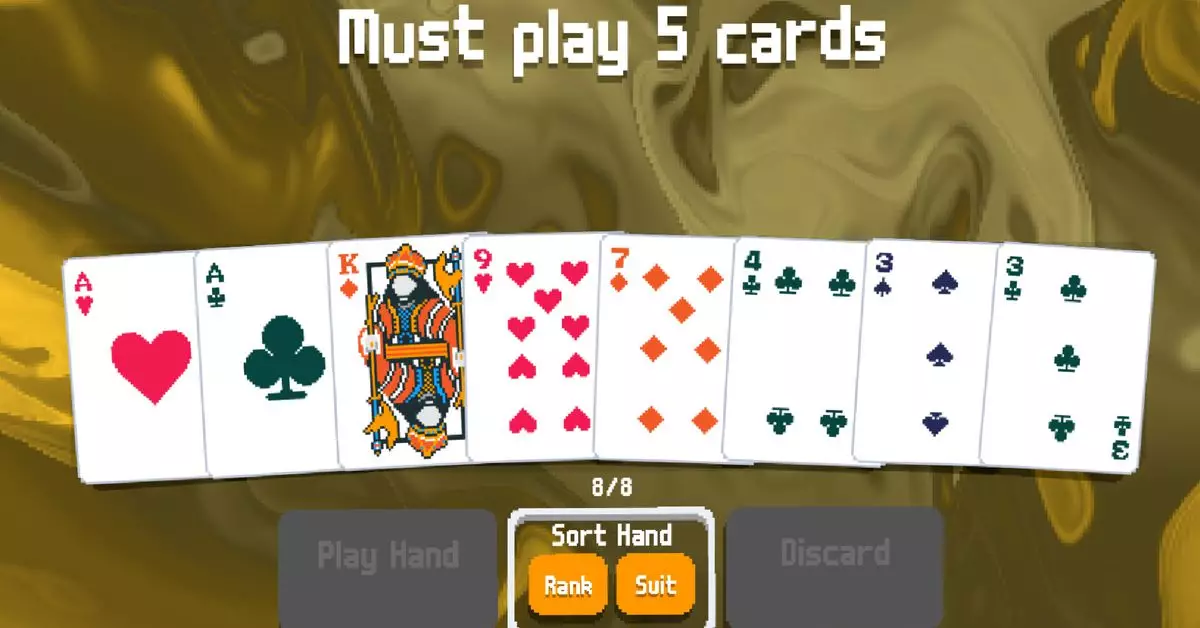Video game ratings serve as a crucial guideline for consumers, especially when it comes to determining the suitability of content for various age groups. Industry bodies like PEGI (Pan European Game Information) and the ESRB (Entertainment Software Rating Board) play pivotal roles in creating these classifications, yet their indications can often lead to controversies and debates among creators, publishers, and the gaming community at large. One current example of this tension revolves around the indie roguelike game “Balatro” and its unexpectedly stringent 18-plus rating.
The creator of Balatro, who operates under the pseudonym LocalThunk, recently expressed his dissatisfaction with PEGI’s decision to assign the game an adult rating. This discontent stems from Balatro’s depiction of cards and poker mechanics, which, while skill-based and educational in gaming context, seemingly align it with gambling in the eyes of regulators. As LocalThunk quipped on social media, the absurdity of being rated for “evil playing cards” raises concerns about the criteria used in rating systems and whether they appropriately consider the game’s actual content.
The implications of Balatro’s rating have been significant. Following the shift from a 3-plus to an 18-plus classification, the game was temporarily removed from various digital storefronts across certain countries. This delisting underscores how ratings not only inform consumers but can also dictate a game’s availability, indirectly controlling the creator’s access to their audience. Furthermore, this event highlights the importance of clarity and fairness in the rating process, especially for indie developers who may not have the same robust marketing strategies as larger entities.
The crux of the issue for LocalThunk appears to be the inconsistency in how different games are rated. For instance, mainstream titles like “EA Sports FC,” which include randomized loot box mechanics and in-game purchases that could be viewed as a form of gambling, are assigned a 3-plus rating. The disparity in ratings between Balatro and games that contain actual gambling elements invites scrutiny regarding the standards employed by ratings organizations.
At first glance, Balatro’s gameplay is rooted in poker strategies that teach players about various hands and scoring methods. Players receive in-game rewards in the form of “chips,” a mechanic that could offer valuable skills in formal poker settings. The game creates a learning environment rather than a gambling one, leading one to question whether PEGI’s stance on potential gambling associations oversimplifies the educational value that games like Balatro can provide.
This dichotomy between education and gambling is important to discuss, especially in a time when gaming is often accused of perpetuating gambling behavior among younger audiences. Balatro does not incorporate any of the addictive or financial risk-bearing elements commonly associated with gambling; no real money exchanges hands, and its gameplay is purely skill-based—an important distinction that PEGI appears to overlook.
The confusion surrounding Balatro’s rating isn’t an isolated incident; it mirrors broader concerns regarding the criteria applied by regulatory bodies. LocalThunk expressed frustration regarding the apparent unwillingness of PEGI to engage in productive discussions about the ratings system and its implications for indie developers. Instead of addressing these pressing issues, the organization cited bureaucratic constraints and external pressures, but such responses lack the transparency and accountability that creators expect.
In the larger perspective, the gaming industry must advocate for more coherent and equitable rating standards that genuinely reflect the content in question. Balatro’s predicament serves as a catalyst for broader discussions about how ratings affect both the creative freedom of developers and the accessibility of games for consumers. The disparity in ratings could discourage new talent from entering the gaming landscape if they fear undue penalties.
As the gaming industry continues to evolve, the conversation surrounding ratings must not remain stagnant but rather adapt to the growing complexity of games and their social contexts. Balatro embodies the antique struggle between innovation and regulation. If organizations like PEGI are to remain effective and relevant, they must embrace dialogue with creators and work to foster an understanding that differentiates educational gaming from exploitative mechanics. Through this, they could enhance their credibility and better serve the gaming community, ensuring that ratings genuinely reflect the nature of games rather than arbitrary interpretations.


Leave a Reply